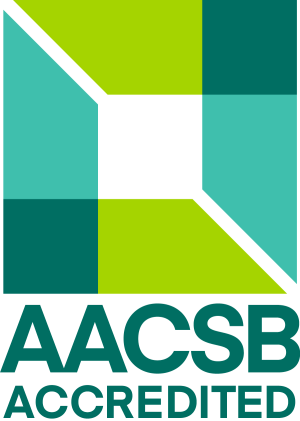
Key information
UCAS code:
LN14
Typical offer:
112-120 UCAS points from 3 A levels, or equivalent
Clearing Hotline: 023 9284 8087
Showing content for section Overview
Overview
Apply now through Clearing
If you have your results, you can apply directly to us now to start in September 2024.
There are few better places to start a career in economics, banking and finance than London, one of the world's most international and well-connected financial centres. Build key economic skills and knowledge from this hub of global business on our BSc (Hons) Economics, Finance and Banking degree.
You'll discover the inner workings of international trade and economic markets, how money moves around the world and its channelling through banking, loans and investments.
Drawing on actual topical data from multinational corporations with ties to London - including Barclays, HSBC and the Bank of England - you'll learn to apply economic theory to real-world practice as an economist.
You'll also delve into the ways financial systems work, covering topics such as monetary policy and financial regulation, portfolio management and stock selection, and behavioural finance and investment psychology.
Once you graduate, you'll have the insight and expertise you need to succeed in this exciting and lucrative sector, across a wide range of economic, financial and banking careers.

Your new home at UoP London
Get a feel for our purpose-built UoP London campus in the heart of lively Waltham Forest, the capital's first Borough of Culture.
Course highlights
- Study economics, finance and banking in London, one of the world's major financial hubs
- Work with real business data from the UK Government's annual budget, the Bank of England, and some of the largest global banking and financial services organisations
- Use the same software (EViews and STATA) and the same financial databases (Eikon and S&P Global IQ) as professional economists in our purpose-built, tech-rich learning spaces
- Build industry connections by attending networking events and presentations alongside London-based business leaders
- Learn from expert academics with close links to organisations such as the Bank of England and the Office for National Statistics
Accreditation

Contact information
Clearing Hotline: 023 9284 8087
Clearing is open
This course is available through Clearing.
Apply now through Clearing
If you have your results, you can apply directly to us now to start in September 2024.
Discover how Clearing works
Clearing 2024 opens on 5 July and closes on 21 October
Every year thousands of students find their ideal undergraduate course through Clearing. Clearing matches students who are looking for a different course or university from their original choice, or who are applying for the very first time after 30 June, to courses that universities still have places on.
The majority of people apply through Clearing once they receive their exam results on A level / T level results day (15 August 2024).
You can apply through Clearing if:
- You don't meet the conditions of your offer for your firm (first) or insurance (second) choice courses
- Your exam results are better than you expected and you want to change your course or university
- You don't hold any offers
- You've accepted an offer but changed your mind about the course you want to do
- You're applying for the first time after 30 June 2024
Yes, we welcome Clearing applications from international students and you can apply in exactly the same way as UK students do.
The majority of UK students apply through Clearing once they receive their A level / T level results in August 2024, so as an international student if you already have your exam results you can apply when Clearing opens.
Make sure that you have time to get your visa, funding, and English language certification sorted out before the beginning of term.
If you would like further information or guidance, please contact our international office for advice.
No, it's not too late and you should make your application for student finance as soon as possible. You don't have to wait for your results. You can make your application now and just amend it when you know where you're going to be.
If you've already applied for your student loan, you'll need to log into your account and update details about your new course/university. If you haven't applied for your student loan yet, don't panic. Apply today – it only takes 30 minutes.
Find out more in our Student finance for Clearing guide.
Clearing Hotline: 023 9284 8087
Entry requirements
BSc (Econ) (Hons) Economics, Finance and Banking degree entry requirements
Typical offers
- A levels - BBB-BBC
- UCAS points - 112-120 points from 3 A levels, or equivalent (calculate your UCAS points)
- T-levels - Merit
- BTECs (Extended Diplomas) - DDM-DMM
- International Baccalaureate - 29
Find full entry requirements and other qualifications we accept.
English language requirements
- English language proficiency at a minimum of IELTS band 6.0 with no component score below 5.5.
See alternative English language qualifications.
If you don't meet the English language requirements yet, you can achieve the level you need by successfully completing a pre-sessional English programme before you start your course.
Typical offers
- A levels - BBB-BBC
- UCAS points - 112-120 points from 3 A levels, or equivalent (calculate your UCAS points)
- T-levels - Merit
- BTECs (Extended Diplomas) - DDM-DMM
- International Baccalaureate - 29
You may need to have studied specific subjects or GCSEs - see full entry requirements and other qualifications we accept.
English language requirements
- English language proficiency at a minimum of IELTS band 6.0 with no component score below 5.5.
See alternative English language qualifications.
If you don't meet the English language requirements yet, you can achieve the level you need by successfully completing a pre-sessional English programme before you start your course.
We look at more than just your grades
While we consider your grades when making an offer, we also carefully look at your circumstances and other factors to assess your potential. These include whether you live and work in the region and your personal and family circumstances which we assess using established data.
Ideal skills and qualities for this course
We're looking for good literacy and good numeracy skills. As well as teaching you how to use theories and tools to understand economic data, this course has a strong focus on interpreting and communicating that data in ways people can understand.
Students who've got the most from this course are those who have an interest in analysing current economic, social, and financial issues and how they affect society.
Careers and opportunities
You'll graduate from this BSc (Hons) Economics, Finance and Banking degree with sought-after skills you can use across the public and private sectors, in areas such as accounting, commercial and investment banking, tax consultancy and risk management.
You could also progress on to postgraduate study in an economics or finance-related area, or choose to set up your own business.
Graduates of this course from the University of Portsmouth have gone on to roles including:
- banker
- business analyst
- project manager
- associate financial data analyst
- account analyst
- trainee accountant
- quantitative researcher - machine learning/ AI
- treasury solutions executive
- financial recruitment
They've gone on to work for companies such as:
- Bank of Ireland
- State Street Bank & Trust
- J.P. Morgan Chase & Co.
- Bank of East Asia
- Royal Bank of Scotland
- Barclays
- Santander UK
- Accenture PLC
- S & P Global (data insights)
- Fujitsu (global IT)
Modules
Each module on this course is worth a certain number of credits.
In each year, you need to study modules worth a total of 120 credits. For example, four modules worth 20 credits and one module worth 40 credits.
What you'll study
Core modules in this year include:
- Introduction to Finance, Accounting and Banking - 20 credits
- Issues in Economics - 20 credits
- Macroeconomics - 20 credits
- Mathematics for Economics - 20 credits
- Microeconomics - 20 credits
- Statistics for Economics - 20 credits
- Personal Development Planning for Economists - 0 credits
There are no optional modules in this year.
Core modules in this year include:
- Data and Research Methods for Economics - 20 credits
- Corporate Financial Management - 20 credits
- Intermediate Economics - 20 credits
- Economics of Money, Banking and Financial Markets - 20 credits
- Psychology and Altruism in Economics and Finance - 20 credits
- Personal Development Planning for Economists - 0 credits
Optional modules in this year include:
- Econometric Methods - 20 credits
- Managerial and Decision Economics - 20 credits
- International Economics - 20 credits
- Behavioural Economics and Game Theory - 20 credits
- Investment Analysis - 20 credits
Core modules in this year include:
- Economics Research Project - 40 credits
- Financial Economics - 20 credits
- International Banking and Financial Instruments - 20 credits
- Personal Development Planning for Economists - 0 credits
Optional modules in this year include:
- Public Policies and Labour Markets - 20 credits
- Crime, Conflict and Terrorism - 20 credits
- Econometric Analysis - 20 credits
- Development Economics - 20 credits
- Advanced Corporate Financial Management - 20 credits
- Behavioural Finance and the Psychology of Investment - 20 credits
- Market Economics and Business Strategy - 20 credits
- Advanced Economics - 20 credits
- Energy and Environmental Economics - 20 credits
- Economics and Finance of Sport - 20 credits
Changes to course content
We use the best and most current research and professional practice alongside feedback from our students to make sure course content is relevant to your future career or further studies.
Therefore, some course content may change over time to reflect changes in the discipline or industry. If a module doesn't run, we'll let you know as soon as possible and help you choose an alternative module.
Teaching
The majority of your learning will be face-to-face and will include:
- workshops
- seminars
- one-on-one tutorials
- practical sessions
- group discussions
You'll use the latest software and tech to support your learning and develop your practical knowledge.
Assessment
Your assessment will depend on which modules you take. Assessment methods are likely to include:
- written reports
- oral presentations
- portfolios
- exams
- dissertation
How you'll spend your time
One of the main differences between school or college and university is how much control you have over your learning.
We're planning for most of your learning to be supported by timetabled face-to-face teaching with some elements of online provision.
A typical week
We recommend you spend at least 35 hours a week studying for this degree.
Your total study time will depend on the modules that you take, but in your first year this is what your week may look like:
- timetabled teaching activities (lectures, seminars, tutorials, classes and workshops) = about 10-12 hours a week
- independent study (research, reading, coursework and project work, alone or in a group) = about 21 hours a week
You'll probably do more independent study and have less scheduled teaching in years 2 and 3, but this depends on which modules you choose.
Term dates
The academic year runs from September to June. There are breaks at Christmas and Easter.
Supporting you
The amount of timetabled teaching you'll get on your degree might be less than what you're used to at school or college, but you'll get the following types of support via video, phone and face-to-face from our London campus support team to enhance your learning experience and help you succeed:
- academic writing (such as essays, reports, dissertations, projects and literature reviews)
- reflective writing
- critical thinking skills
- delivering presentations (including observing and filming presentations)
- understanding and using assignment feedback
- managing your time and workload
- revision and exam techniques
You'll also have access to a personal tutor to support you in your studies.
If English isn't your first language, you can do one of our English language courses to improve your written and spoken English language skills before starting your degree. Once you're here, you can take part in our free In-Sessional English (ISE) programme to improve your English further.
Course costs and funding
Tuition fees
- UK/Channel Islands and Isle of Man students – £9,250 (subject to annual increase)
- EU students – £17,200 (subject to annual increase)
- International students – £17,200 (subject to annual increase)
- UK/Channel Islands and Isle of Man students – £9,250 (subject to annual increase)
- EU students – £17,200 (subject to annual increase)
- International students – £17,200 (subject to annual increase)
Funding your studies
Find out how to fund your studies, including the scholarships and bursaries you could get. You can also find more about tuition fees and living costs, including what your tuition fees cover.
Additional course costs
These course-related costs aren’t included in the tuition fees. So you’ll need to budget for them when you plan your spending.
Additional costs
Our accommodation section shows your accommodation options and highlights how much it costs to live in Waltham Forest.
You’ll study up to 6 modules a year. You may have to read several recommended books or textbooks for each module.
You can borrow most of these from the Library. If you buy these, they may cost up to £60 each.
We recommend that you budget £75 a year for photocopying, memory sticks, DVDs and CDs, printing charges, binding and specialist printing.
If your final year includes a major project, there could be cost for transport or accommodation related to your research activities. The amount will depend on the project you choose.
How to apply
Apply now through Clearing
If you have your results, you can apply directly to us now to start in September 2024.
Applying for year 2 or 3
If you've already completed part of this course with us or another university and would like to apply for the second or third year with us in September 2024, use our online application form.
September 2025 applications
To start this course in 2025, apply through UCAS. You'll need:
- the UCAS course code - LN14
- our institution code - P80
If you'd prefer to apply directly, use our online application form.
How to apply from outside the UK
You can get an agent to help with your application. Check your country page for details of agents in your region.
To find out what to include in your application, head to the how to apply page of our international students section.
If you don't meet the English language requirements for this course yet, you can achieve the level you need by successfully completing a pre-sessional English programme before you start your course.
Admissions terms and conditions
When you accept an offer to study at the University of Portsmouth, you also agree to abide by our Student Contract (which includes the University's relevant policies, rules and regulations). You should read and consider these before you apply.

